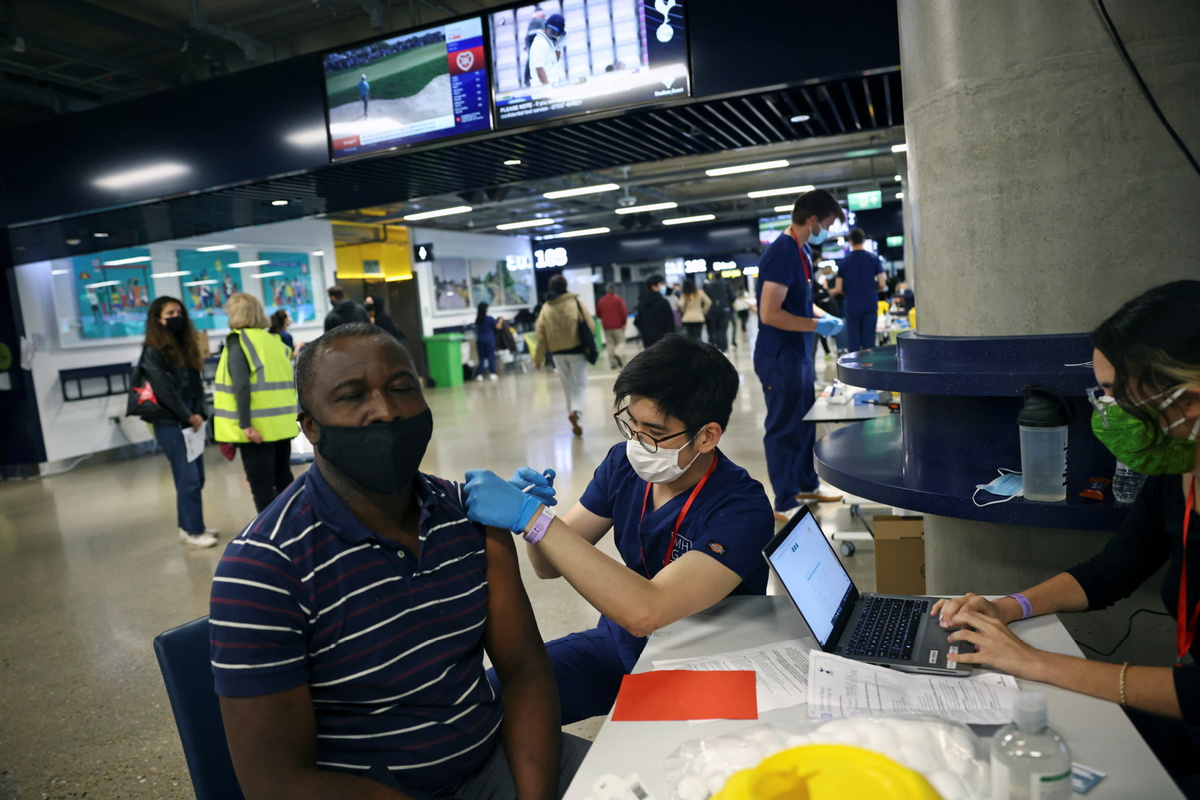Britain mulling benefits of booster jabs
By ANGUS McNEICE in London | China Daily Global | Updated: 2021-07-02 09:43

The United Kingdom's vaccine advisory body has put forward a proposal that would make millions of people eligible for a third COVID-19 vaccine dose from September, prompting some experts to question whether a booster program is necessary so soon.
The UK Joint Committee on Vaccination and Immunization, or JCVI, this week released its interim recommendations for the proposed vaccine booster program, which would begin its first stage by offering third shots to immunosuppressed and clinically vulnerable people, those in care homes, people older than 70, and frontline health and social care workers. Around 15 million people would be eligible for a dose during stage one.
The JCVI said the second stage of the program should involve offering third doses to all people older than 50, as well as 16 to 49 years old who have conditions that make them at risk of developing severe COVID-19.During this stage, a further 17 million people would be eligible for a booster jab. Down the line, offering a third dose to all adults under 50 years old has not been ruled out.
"We need to learn to live with this virus," UK Health Secretary Sajid Javid said. "Our first COVID-19 vaccination program is restoring freedom in this country, and our booster program will protect this freedom. We are working with the NHS to make sure we can rapidly deliver this program to maintain protection for people in the winter months."
Vaccines Minister Nadhim Zahawi said that mapping out a booster program will "future proof" the UK vaccine program and "protect our most vulnerable from variants and flu ahead of the winter".
But some experts are not convinced that a booster program is needed at this point in the pandemic.
"At the moment, there is little clinical or laboratory evidence that boosters are needed and the JCVI has understandably not committed itself yet," said David Elliman, who is a NHS consultant community pediatrician and a clinical lead at Public Health England.
Oxford University recently released a preprint study that indicated a booster dose of the AstraZeneca jab is effective at provoking a raised immune response. However, Andrew Pollard, who is director of the Oxford Vaccine Group, said that while we now have some proof that third doses work, there is "no indication today that we need boosters".
"It is something where we need to keep looking at the data and make decisions as the months go by, about whether that protection that we have is lost," Pollard said in a statement this week.
Elliman also questioned if it is right that the UK should deploy such a large amount of third doses, when there is high global demand for first and second treatments. The UK has already given one dose to 85 percent of its population, with 62 percent having received a second dose.
"When, in large parts of the world, there is not enough vaccine to give one dose to the adult population, is it right that we should be using up vaccines in this way? Can we, in all conscience, justify this?" Elliman said.
























